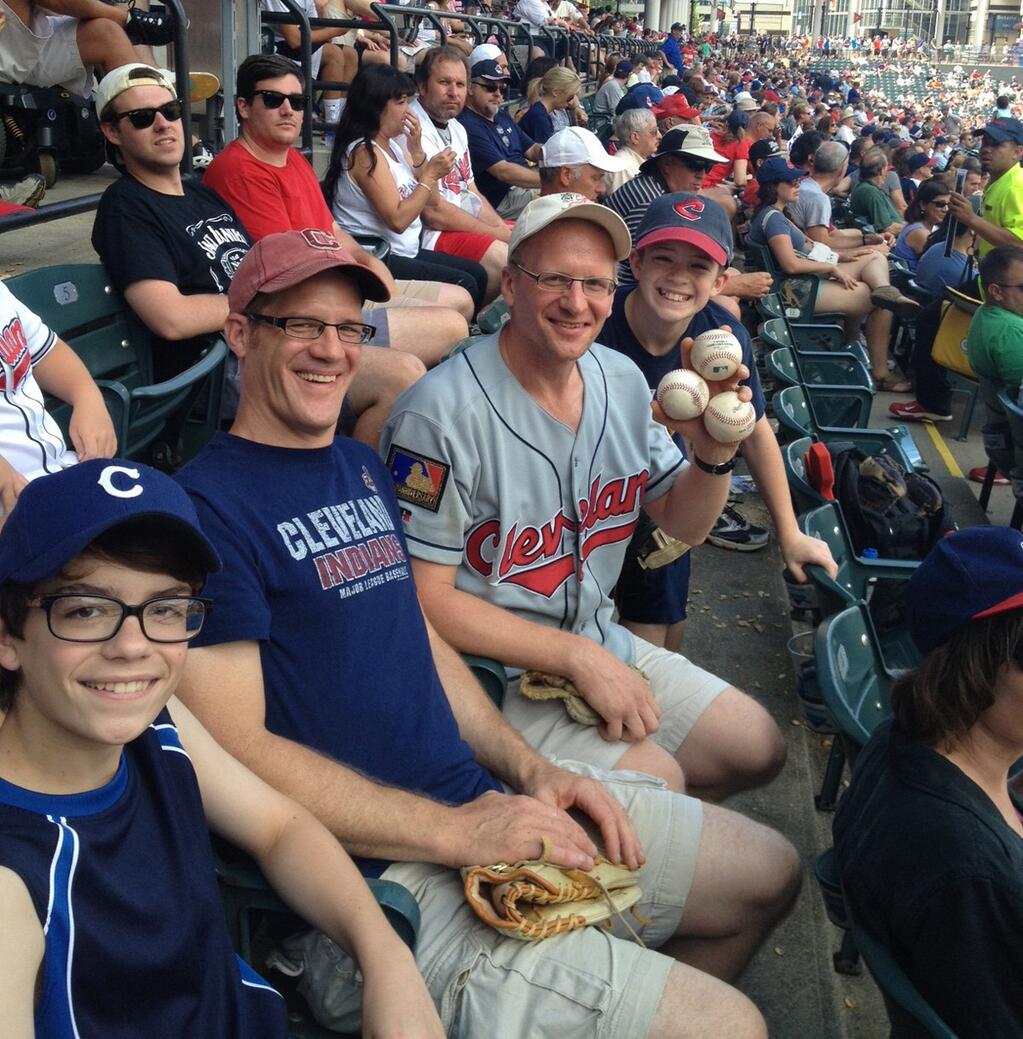The Monday Morning Rouser:
http://youtu.be/-lADwy2j5Is
There’s plenty of coverage all over this website and on MPR today about the Zimmerman trial, but let’s take President Obama up on the questions he asked in the statement following Saturday’s verdict.
“We should ask ourselves if we’re doing all we can to widen the circle of compassion and understanding in our own communities,” he said.
Curiously, the TV news shows deleted the question — and the president’s point — when relaying the statement.
It’s a simple question that either is “yes” or “no,” and doesn’t require one to take sides in the debate over the verdict. If you’d like to add to your answer, feel free to do so in the comments section.
But on the verdict: the Star Tribune editorial today celebrates due process:
It is around respect for the rule of the law and the principle of due process that Americans can unite even in a polarized time. The nation must seek that unity now, taking comfort from the knowledge that Trayvon Martin’s death was not ignored nor minimized. The facts surrounding it were fully aired and fiercely contested — and were resolved in accordance with law and within the limits of an imperfect human system of justice.
Related compassion: Teen athlete helps raise $27,000 to help kids with cancer (St. Cloud Times)
2) THE ONCE-A-DAY-PHONE-CALL ECONOMY
In North Dakota’s oil patch and other drilling operations around the globe, the lure of a good paycheck will again trump the joy of love.
It’s a man’s world there. They’ve left home and headed where the jobs are, scarring more than just the land in the process. They’ve sacrificed relationships for which nothing provides a proper substitute.
Joe Stewart, who is writing a book about his work in the oil fields, describes in the New York Times the daily moment of despair: when men call home:
Some say their relationships last longer because the volatile mix of personalities is kept in check by the weeks away, but those relationships are doomed already. There are those who can make this work.
But there are also wireline-recording cabs, frack trucks and oil field towns full of the broken hearts of desperate souls who thought this job was making their life better.
Ed has been married something like 37 years. He makes his phone calls from his pickup and no one knows what he says. His brother-in-law does the same thing from another pickup; he has been with his wife for a third of a century.
Mike also calls from his truck and drifts in and out of a state of near divorce.
It is important for us to remember we are not the first to face this. It is important for us not to see this as the fault of the modern world.
(h/t: Ben Chorn)
3) IN PRAISE OF THE INNOVATORS
As any pilot in the United States will tell you, there isn’t a generation coming along with a particular delight in the idea of flying. It’s expensive, but it was expensive back in the day of the barnstormers, too, when kids would look up and dream about flying.
Africa, on the other hand, is full of dreamers. A couple of years ago, you may recall, we provided the story of a man who was making his own airplane out of junk he scavenged. It had no chance of flying; the man wasn’t particularly schooled in the principles of flight. But he had a passion for it, nonetheless.
The BBC spotlights these “innovators,” and notes that, unlike the U.S. in its heyday, the nation builders and heroes in Africa tend to be poets and artists, not the people who tend to want to make things.
In many African countries those who are most revered in history books are nation builders and founders, who, more often than not, were writers, artists, poets and politicos. The equivalents of the likes of Thomas Edison and Henry Ford feature far less prominently. “In Africa, they are invisible,” says Okafor.
Faced with this combination of obstacles, those driven by the passion to innovate face an uphill battle. After Mwangi unveiled his helicopter in April, his employer fired him, claiming the media attention was interfering with his work. Then, the local authorities confiscated his chopper, saying it was a “security risk”. The police have since returned it, but have forbidden Mwangi from flying it.
And yet sometimes these innovators do get the rewards as well as recognition. In 2007, 24-year-old Nigerian physics student Mubarak Muhammed Abdullahi spent nearly a year building a 12-metre (39ft) long helicopter out of spare parts sourced from old cars, motorcycles, and even a crashed Boeing 747, using money he saved from repairing cell phones and computers.
It’s an interesting essay that has us dreaming, too, of what might be possible on the planet if people’s desire to innovate, experiment, fail, and succeed could be unencumbered?
(h/t: Michael Wells)
Related aviation: ‘Flying Padres’ use airplanes as a means of spreading the gospel of Jesus.
4) TO BE A FARMER IN MINNESOTA
We took the shortcut home from Red Wing on Friday, cutting through Prairie Island, and saw for ourselves what the weather has done to the spring planting. Along the highway, for example, we saw acres of corn that don’t have a chance; it appeared getting it into the ground wasn’t the problem, but the rain of the last few weeks did it in.
Early Saturday morning, some areas got more than five inches of rain. At Laughing Loon Farm in Northfield, Dayna Burtness Nguyen says the farm got flooded again (you may recall the herculean effort last year to recover), but they learned a few lessons from last year, she reported on Facebook. The neighboring Seeds Farm did not fare as well, she reported.

“We’ve had bad years before,” said Brian Sorensen, owner of Waltham’s Sorensen’s Farms, tells the Rochester Post Bulletin. “It’s certainly the worst I’ve ever seen.”
In April, there were only 16 hours of planting time.
Related weather: The Saturday morning lightning of Perham.
Baseball is a beautiful game best not ruined by its refinements. Like the designated hitter. Oh, and gloves. Meet the men of the Rochester (MI) Grangers.
More baseball: I’ve had a bucket list item all of my life: Catch a foul ball at a baseball game. Over the weekend, a guy in Cleveland caught four of them. Moral: Life isn’t fair.

Bonus I: Minnesota moments.
Bonus II: The Mississippi: River of peace … and death. (Pioneer Press)
Bonus III: A young cancer patient in Ohio named his brain tumor “Michigan” to provide a little extra motivation to beat it. He beat it. (h/t: Matt Black)
Bonus IV: Somebody taped this sign on the window of Children’s Hospital in Los Angeles.
Somebody else sent pizza.
TODAY’S QUESTION
What do you think of the acquittal of George Zimmerman?
WHAT WE’RE DOING
Daily Circuit (9-12 p.m.) – First hour: The obesity era.
Second hour: Rising interest rates and credit company tricks.
Third hour: The Zimmerman verdict.
MPR News Presents (12-1 pm): Vin Weber moderates an Aspen Ideas Festival panel discussion about the future of the Republican Party, featuring Michael Gerson, Elaine Chao and Karl Rove.
The Takeaway (1-2 p.m.) – the world was watching the trial of George Zimmerman, the self-appointed neighborhood watchman that shot and killed 17-year-old Trayvon Martin. Over the weekend, the verdict came down—a six-woman jury found Zimmerman not guilty of second degree murder and acquitted him of manslaughter. The Takeaway looks at the verdict and what it means for justice in America.
All Things Considered (3-6:30 p.m.) – A geo-tagging project helps researchers learn about the migratory and feeding habits of loons. They’re learning some surprising new information about the iconic Minnesota bird. MPR’s Dan Gunderson will have the story.
Congregations distinguish themselves in the ways they pray and the music they play. In churches around the country, for example, the organ or piano is not always the musical centerpiece. At a North Carolina Pentecostal church, its the holy trombones. That’s where NPR begins a new series on sacred music in America.


